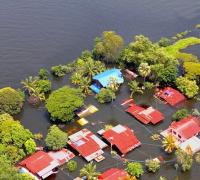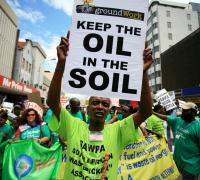When climate policies are implemented, they change
Negotiating climate change agreements and policies is one thing – but how do practitioners actually implement them, and what is their influence on the process? This is the topic of a new article in Global Environmental Change by Mikkel Funder, DIIS, and Carol Mweemba, University of Zambia.
The article highlights a group of actors whose role in climate governance has so far received little attention, namely the civil servants and technical experts who are responsible for the everyday implementation of national climate change policies and associated programmes on the ground.
Drawing on research in Zambia, but engaging with findings from around the world, the article shows how these professionals apply a high degree of discretion and pragmatism as they go about implementing climate change adaptation policies. This includes negotiating compromises and informal arrangements with citizens, following the path of least resistance, and reshaping government policies to suit local conditions and personal experience.
As a result, the nature and outcomes of climate change adaptation interventions end up differently from the official policies and underlying political interests of the central state. Sometimes, these outcomes are in fact better solutions than what was originally planned, and more in line with citizens interests.
These findings point to the importance of paying greater attention to the role of practitioners and subnational actors as real-world climate policy makers. The 2018 report from the Intergovernmental Panel on Climate Change on Global Warming suggests the need for a “whole of government” approach to climate action, in which all levels of scale are given attention.For such an approach to work, it must understand and take seriously not only formal policies and organizational arrangements, but also the informal and often hidden work of the actors who operate at the intersections of climate governance, such as the interface bureaucrats discussed here. The outcome of their work is not inherently good nor bad, but the point is that it makes a difference and must therefore be taken into account when developing mechanisms for climate governance and understanding their progress.
The article is based on collaborative research between the Danish Institute of International Studies and the University of Zambia. Part of the work was carried out under the Climate Change and Rural Institutions Programme, and funded by the Danish Consultative Research Committee for Development Research.
DIIS Experts



